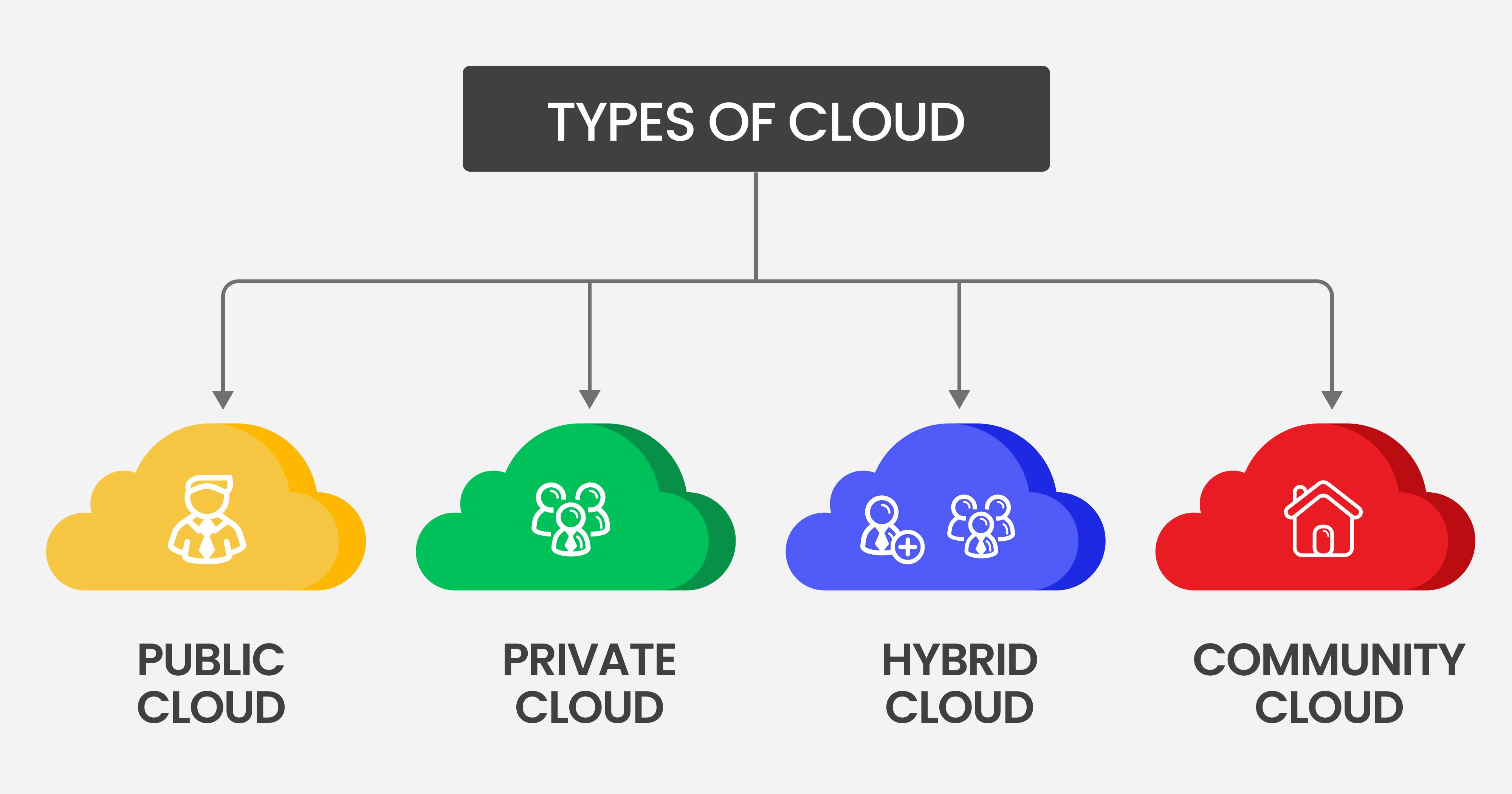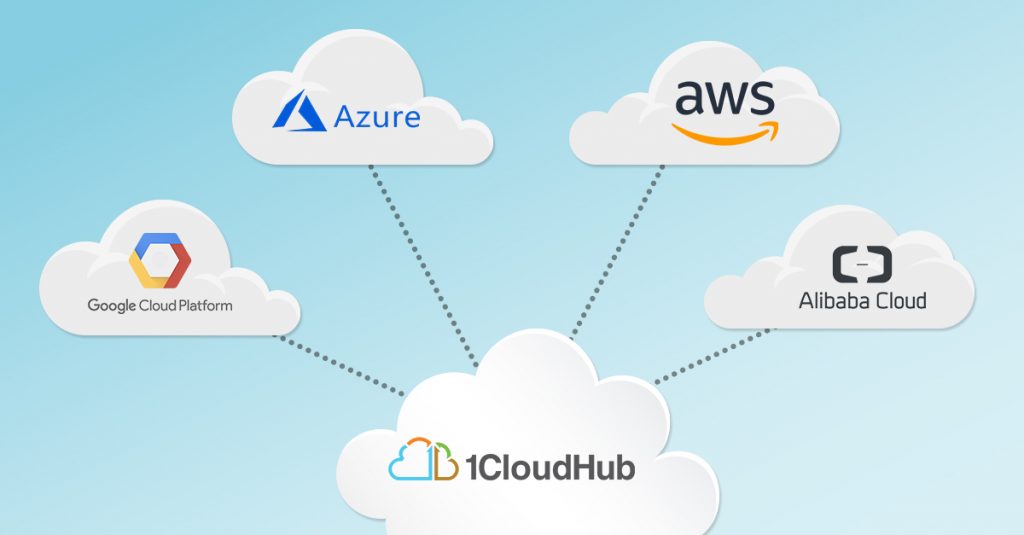Unlocking the Power of Cloud Computing: A Comprehensive Guide
In today’s rapidly evolving digital landscape, cloud computing has emerged as a transformative force, revolutionizing the way businesses and individuals approach technology. Cloud computing services have become the backbone of modern digital infrastructure, offering a myriad of benefits that have propelled their widespread adoption. From scalability and cost-efficiency to enhanced accessibility and seamless collaboration, the advantages of cloud computing are undeniable. At the heart of this digital revolution are the top cloud computing services, each offering a unique set of features and capabilities to cater to the diverse needs of organizations. These cloud platforms have become the go-to solutions for businesses seeking to streamline their operations, harness the power of data, and drive innovation. By leveraging the cloud, companies can unlock new levels of agility, scalability, and cost-effectiveness, empowering them to stay ahead of the curve in an increasingly competitive market.
Whether you’re a small startup or a large enterprise, understanding the top cloud computing services and their respective strengths is crucial for making informed decisions about your digital transformation journey. This comprehensive guide will delve into the leading cloud computing platforms, exploring their key features, use cases, and the factors to consider when selecting the right solution for your business.
Amazon Web Services (AWS): The Industry Leader
As the undisputed leader in the cloud computing landscape, Amazon Web Services (AWS) has firmly established itself as the go-to platform for businesses of all sizes. With a comprehensive suite of services spanning compute, storage, networking, and data management, AWS offers unparalleled flexibility and scalability to meet the diverse needs of its customers. At the heart of AWS’s success is its vast array of cloud-based solutions, each designed to streamline and optimize various aspects of a business’s operations. From the powerful Amazon Elastic Compute Cloud (EC2) for scalable computing power to the highly durable Amazon Simple Storage Service (S3) for secure data storage, AWS provides a robust and reliable infrastructure that has become the backbone of countless organizations.
One of the key factors that has propelled AWS to the forefront of the cloud computing industry is its relentless innovation. The platform continuously introduces new services and features, empowering businesses to stay ahead of the curve and capitalize on emerging technologies. Whether it’s the integration of artificial intelligence and machine learning through services like Amazon SageMaker or the seamless management of containerized applications with Amazon Elastic Kubernetes Service (EKS), AWS consistently delivers cutting-edge solutions to meet the evolving needs of its customers.
Moreover, AWS’s global reach and extensive partner ecosystem have made it the preferred choice for enterprises seeking a scalable and secure cloud platform. With data centers spanning multiple regions and availability zones, AWS ensures high availability and disaster recovery, while its vast network of technology partners provides a wealth of complementary solutions and expertise to further enhance the cloud experience.
As the top cloud computing service, AWS has become synonymous with reliability, scalability, and innovation, making it the go-to platform for businesses of all sizes seeking to drive their digital transformation and unlock new levels of efficiency and growth.
Microsoft Azure: The Versatile Cloud Solution
As a formidable contender in the top cloud computing services landscape, Microsoft Azure has emerged as a versatile and comprehensive cloud platform. Backed by the technological prowess of Microsoft, Azure offers a robust suite of cloud-based solutions that cater to the diverse needs of enterprises and organizations. One of the key strengths of Microsoft Azure lies in its seamless integration with the broader Microsoft ecosystem. Businesses that have already invested in Microsoft products and services, such as Office 365, Dynamics 365, and Windows Server, can leverage Azure’s tight integration to streamline their operations and maximize their technology investments. This level of synergy allows for enhanced productivity, data management, and collaboration, making Azure an attractive choice for organizations deeply embedded in the Microsoft environment.
In addition to its ecosystem integration, Azure boasts a comprehensive range of cloud services, including compute, storage, networking, and data management. From the scalable Azure Virtual Machines to the highly secure Azure SQL Database, the platform provides a wide array of tools and services to address the evolving needs of modern businesses. Furthermore, Azure’s robust security features, including advanced threat detection and compliance certifications, make it a preferred choice for enterprises and organizations operating in regulated industries.
Another notable aspect of Microsoft Azure is its suitability for organizations with diverse IT requirements. Whether it’s a small startup or a large multinational corporation, Azure’s flexibility and scalability allow it to adapt to the unique needs of each customer. This versatility, coupled with Azure’s global reach and reliable infrastructure, has made it a go-to cloud solution for enterprises seeking a trusted and comprehensive platform to drive their digital transformation.
As the top cloud computing service, Microsoft Azure continues to evolve and expand its capabilities, offering businesses a robust and reliable cloud platform that seamlessly integrates with the broader Microsoft ecosystem and delivers enterprise-grade security and compliance features.
Google Cloud Platform (GCP): The Innovative Cloud Offering
As the top cloud computing services landscape continues to evolve, Google Cloud Platform (GCP) has emerged as a formidable contender, offering a cutting-edge and innovative cloud solution. Backed by the technological prowess of Google, GCP has positioned itself as a go-to platform for data-driven organizations and developers seeking to harness the power of cloud computing. One of the key strengths of GCP lies in its advanced technologies, particularly in the realm of artificial intelligence (AI) and machine learning (ML). Leveraging Google’s expertise in these fields, GCP provides a suite of AI and ML services that empower businesses to unlock new levels of insights and automation. From the powerful Google Cloud Dataflow for real-time data processing to the versatile Google Cloud Dataproc for big data analytics, GCP offers a comprehensive set of tools to help organizations extract maximum value from their data.
In addition to its AI and ML capabilities, GCP also boasts a robust and scalable infrastructure that caters to the needs of modern, data-driven businesses. With a global network of data centers and a focus on high availability and disaster recovery, GCP ensures that organizations can rely on a reliable and secure cloud platform to power their critical applications and workloads.
Another notable aspect of GCP is its strong focus on developer-centric features and services. By providing a seamless integration with popular open-source technologies, such as Kubernetes and Terraform, GCP enables developers to leverage their existing skills and workflows, streamlining the development and deployment of cloud-native applications.
Furthermore, GCP’s commitment to innovation extends beyond its core cloud services. The platform’s integration with emerging technologies, like the Internet of Things (IoT) and edge computing, positions it as a forward-thinking cloud solution that can help businesses stay ahead of the curve in an ever-evolving digital landscape.
As a top cloud computing service, Google Cloud Platform has established itself as a premier choice for organizations seeking a cutting-edge, data-driven, and developer-friendly cloud solution to power their digital transformation initiatives.
IBM Cloud: The Trusted Enterprise-Grade Solution
As the top cloud computing services landscape continues to evolve, IBM Cloud has emerged as a trusted and enterprise-grade cloud solution, catering to the needs of large organizations and regulated industries. Backed by the technological expertise and global reach of IBM, the platform offers a comprehensive suite of cloud-based services that prioritize security, compliance, and reliability. One of the key strengths of IBM Cloud lies in its enterprise-level security features, which are essential for businesses operating in highly regulated sectors. With advanced data encryption, identity and access management, and compliance certifications, IBM Cloud provides the robust security measures required to safeguard sensitive data and critical applications. This level of security assurance has made IBM Cloud a preferred choice for organizations in industries such as finance, healthcare, and government.
In addition to its security focus, IBM Cloud also boasts a strong emphasis on compliance, ensuring that businesses can seamlessly navigate the complex regulatory landscape. By offering a wide range of compliance certifications, including HIPAA, PCI-DSS, and FedRAMP, IBM Cloud enables organizations to meet the stringent requirements of their respective industries, mitigating the risk of costly fines and reputational damage.
Reliability is another hallmark of IBM Cloud, with the platform’s global network of data centers and high-availability infrastructure ensuring that businesses can rely on a stable and resilient cloud environment. This level of reliability is particularly crucial for enterprises that require mission-critical applications and services to be available at all times, without interruption.
Beyond its core security, compliance, and reliability features, IBM Cloud also offers a comprehensive suite of cloud services, including compute, storage, networking, and data management. This breadth of offerings allows enterprises to consolidate their cloud infrastructure and leverage a single, trusted platform to power their digital transformation initiatives.
As a top cloud computing service, IBM Cloud has established itself as a go-to choice for large organizations and regulated industries seeking an enterprise-grade cloud solution that prioritizes security, compliance, and reliability – essential elements for driving successful digital transformation.
How to Choose the Right Cloud Computing Service for Your Business
As the top cloud computing services landscape continues to evolve, businesses of all sizes are faced with the challenge of selecting the most suitable platform to power their digital transformation. With a multitude of options available, each with its own unique features and capabilities, the decision-making process can be daunting. However, by following a structured approach, organizations can identify the cloud computing service that aligns best with their specific requirements and strategic objectives. The first step in choosing the right cloud computing service is to assess your business’s unique needs and priorities. Consider factors such as the size and scale of your operations, the industry you operate in, and the specific workloads and applications you need to run. This evaluation will help you determine the essential features and capabilities you require from a cloud platform, such as scalability, security, compliance, or specialized services like artificial intelligence and machine learning.
Next, evaluate the cost implications of each cloud computing service. While cost-efficiency is a significant driver for cloud adoption, it’s essential to look beyond the base pricing and consider factors like data transfer fees, storage costs, and the potential for unexpected charges. Carefully analyze the pricing models and cost structures of the top cloud computing services to ensure that the chosen platform aligns with your budget and long-term financial goals.
Security and compliance are also critical considerations when selecting a cloud computing service. Depending on the sensitivity of your data and the regulatory requirements of your industry, you may need to prioritize cloud platforms that offer robust security features, advanced data encryption, and compliance certifications. Thoroughly research the security and compliance capabilities of each cloud service to ensure that your organization’s data and operations are adequately protected.
Finally, assess the scalability and flexibility of the cloud computing service. As your business grows and evolves, your cloud infrastructure needs may change. Look for platforms that can seamlessly scale up or down to accommodate your changing requirements, whether it’s increased computing power, expanded storage, or the integration of new technologies.
By carefully evaluating these key factors – business needs, cost, security and compliance, and scalability – you can make an informed decision and select the top cloud computing service that will best support your organization’s digital transformation journey.
Hybrid and Multi-Cloud Strategies: Maximizing Your Cloud Potential
As businesses continue to navigate the ever-evolving landscape of top cloud computing services, a growing trend has emerged: the adoption of hybrid and multi-cloud strategies. These approaches offer organizations the opportunity to leverage the unique strengths and capabilities of multiple cloud platforms, optimizing their IT infrastructure and unlocking new levels of flexibility and resilience. A hybrid cloud strategy involves the integration of a private cloud infrastructure, such as an on-premises data center, with one or more public cloud services. This approach allows businesses to maintain control over sensitive or mission-critical workloads while still benefiting from the scalability, cost-efficiency, and accessibility of public cloud resources. By seamlessly integrating these two environments, organizations can create a hybrid cloud solution that caters to their specific needs, whether it’s leveraging the public cloud for burst capacity during peak periods or using the private cloud for regulatory compliance requirements.
On the other hand, a multi-cloud strategy involves the utilization of two or more public cloud services, each offering distinct capabilities and features. This approach enables businesses to diversify their cloud portfolio, mitigating the risk of vendor lock-in and ensuring that they can access the most suitable cloud services for their various workloads and applications. For example, an organization might use Amazon Web Services (AWS) for its robust compute and storage offerings, while leveraging Google Cloud Platform (GCP) for its advanced artificial intelligence and machine learning capabilities.
The benefits of adopting a hybrid or multi-cloud strategy are numerous. By combining the strengths of different cloud platforms, businesses can achieve greater flexibility, scalability, and cost optimization. Additionally, these strategies can enhance disaster recovery and business continuity, as organizations can leverage multiple cloud environments to ensure the availability and resilience of their critical systems and data.
However, implementing a hybrid or multi-cloud approach also comes with its own set of challenges. Businesses must navigate the complexities of integrating and managing multiple cloud environments, ensuring seamless data and application portability, and addressing the potential security and compliance concerns that may arise from this distributed infrastructure.
To overcome these challenges, organizations must develop a comprehensive cloud strategy, establish clear governance frameworks, and invest in the necessary tools and expertise to effectively manage their hybrid or multi-cloud environments. By doing so, businesses can unlock the full potential of the top cloud computing services and drive their digital transformation initiatives with greater agility, resilience, and innovation.
The Future of Cloud Computing: Trends and Innovations
As the top cloud computing services continue to evolve and shape the digital landscape, it’s essential to explore the emerging trends and innovations that will define the future of this transformative technology. From the rise of edge computing to the integration of cloud with cutting-edge technologies, the cloud computing industry is poised to undergo a remarkable transformation, offering businesses new opportunities to drive their digital transformation initiatives. One of the key trends in the cloud computing space is the growing prominence of edge computing. As the Internet of Things (IoT) continues to proliferate, the need for real-time data processing and decision-making has become increasingly crucial. Edge computing, which involves processing data closer to the source rather than in a centralized cloud, has emerged as a solution to address the latency and bandwidth challenges associated with cloud-based IoT applications. By bringing computing power and intelligence to the edge, businesses can unlock new use cases, enhance operational efficiency, and improve the overall user experience.
Another significant trend in the cloud computing landscape is the rise of serverless architectures. Serverless computing, also known as Function-as-a-Service (FaaS), allows developers to build and run applications without the need to manage the underlying infrastructure. This approach simplifies the development and deployment process, enabling organizations to focus on their core business logic rather than the complexities of server management. As cloud providers continue to enhance their serverless offerings, businesses can expect to see increased adoption of this model, leading to greater agility, cost-efficiency, and scalability.
The integration of cloud computing with emerging technologies, such as artificial intelligence (AI) and machine learning (ML), is another area of innovation that is transforming the industry. Cloud platforms are increasingly offering AI and ML services that empower businesses to harness the power of data-driven insights and automation. From predictive analytics to intelligent decision-making, the fusion of cloud and AI/ML is opening up new avenues for innovation and competitive advantage.
Furthermore, the cloud computing landscape is witnessing the growing importance of sustainability and environmental responsibility. As businesses and consumers become more conscious of their carbon footprint, cloud providers are responding by investing in renewable energy sources, implementing energy-efficient data centers, and developing sustainable cloud solutions. This shift towards green cloud computing will not only contribute to environmental preservation but also align with the growing demand for eco-friendly technology solutions.
As the top cloud computing services continue to evolve, businesses must stay attuned to these emerging trends and innovations to ensure that their digital transformation strategies remain relevant and future-proof. By embracing the power of edge computing, serverless architectures, AI/ML integration, and sustainable cloud solutions, organizations can unlock new levels of agility, efficiency, and innovation, positioning themselves for long-term success in the ever-changing digital landscape.






